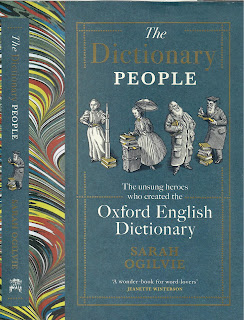This recently discovered
letter is not included in the volume Letters from Lambeth, edited by
Joanna Richardson and published for the Royal Society of Literature in 1981.and
which includes twenty-two letters from Charlotte Reynolds (1761-1848) to John Dovaston (1782 - 1854) It predates by three months the letters published in that book.
In rhyming couplets over two sides
the writer appears to thank John [Freeman Milward] Dovaston both for the gift of
a poem and of a live goose which is going to be eaten. There was indeed a poem
which Dovaston published in 1811 with the title, “TO MRS. REYNOLDS, OF LAMBETH,
with a Goose.” It can be found
online.
TRANSCRIPTION
Charlotte Reynolds to John Dovaston Esqr Junr
Jan/y 13th 1808
To yourself my good friend, as well as your Muse
I beg my best thanks for her verse, & your Goose
With both I am pleas’d, as they fully express
Strong motives of kindness to say nothing less
And proves, “out of sight, out of mind” not quite true
An adage, of old, but not strengthnd in you.
Well, this friend whom so pleasingly you introduce
Is an uncommon pleasant agreeable Goose,
For as soon as she enterd, the intelligent Bird
Began xxx [?]
stling & cackling, in strains yet unheard,
Her master she said, in remembrance held dear
The hours he had spent in much cheerfulness here
Of Friendship she prated, but seemd rather hoarse
But that might arise from her journey of course.
Then good manners in every sense she expressd
And no doubt she will charm, when once she is dress’d
Oh so warmly, so wily, she chanted your praise
And with such pride & pleasure, deliverd your
lays,
That George [Reynolds, her husband], &
myself, at once felt the charm,
Of Friendship express’d, in language so warm.
But the best thing of all that we could discern
From her notes, were, that quickly you meant to
return.
For this welcome news – respect also to you,
I entreated her stay, t’was the least I could do
She graciously bow’d to my kind invitation
And next Thursday at Table will fill up her station.
When to give her the meeting I mean to engage
The serious, the witty, the young & the Sage.
With mirth, song, & reason, to temper the jest
To which good Madame Goose will no doubt give zest.
When your health shall be drunk at this little carouse
But one thing will be wanting – oh – sweet Pinky [??]
House
For what more can please than such music as thine
Admir’d & enjoy’d, by a family circle like
mine.
Our girls are all charm’d, our Boy is delighted
Whenever they hear that friend Dov [aston] is
invited
But I think it high time, I should make some excuse
For say’g so little, in regard to your muse
Who tho, I acknowledge, must needs be admir’d,
Yet, her praises on me are too high – too much fir’d.
In my life, I was never so finely bespather’d
Tho a theme t’was, in which, I can bear to be flatterd
But allow me to smile, that so late in the day
My name should be sung as tho it were May
So good Lady Muse, let me, ere I adjourne
Present my regards as a grateful return
And that you may remain is my ardent Petition
Clear [Chear?] as ye are – not in hobbling condition
As my humble Muse
- who in rhyming or prose
Cannot even earn Glasses to wear on her nose.
This premis’d I don’t find I have further to say
Than our kindest remembrance to self, & to xx xxx
In which Jane, John [Hamilton Reynolds], & Mary,
Eliza & Lot [Charlotte Reynolds junior]
Most earnestly beg, they may not be forgot
Charlotte Reynolds
All arriv’d safe and well & were excellent









